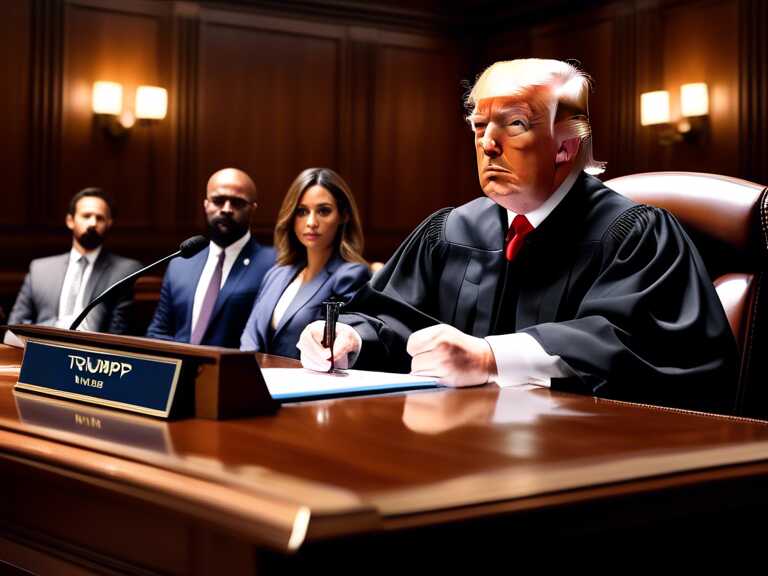
Judge Aileen Cannon to Hold Hearing on Trump's Challenge to Special Counsel
Judge Cannon plans to hold a hearing on Trump's request to invalidate the special counsel's appointment, with various parties joining the oral arguments.

In an unprecedented legal battle, Judge Aileen Cannon is set to hold a hearing on the validity of Jack Smith’s appointment as a special counsel, following a request from Donald Trump to declare it invalid. This signals a potential willingness from the judge to challenge the authority of the special prosecutor, adding a new twist to the federal criminal national security case against the former president.
The planned hearing on June 21 will allow a variety of political partisans and constitutional scholars, not directly involved in the case, to join the oral arguments. This move, coming a year after the initial filing of the case, is an extraordinary development and highlights the significance of the legal dispute at hand.
Past Challenges
In recent years, similar challenges from high-profile targets of special counsel probes have not been successful. For instance, Hunter Biden’s attorney failed to sway judges in Los Angeles and Delaware, Paul Manafort’s challenges against Robert Mueller’s authority were unsuccessful, and Andrew Miller, a former associate of Roger Stone, also lost his challenge to Mueller’s authority. Despite these precedents, Judge Cannon’s approach could result in a different outcome.
The hearing before Judge Cannon is taking place amidst heightened scrutiny of Attorney General Merrick Garland’s use of special counsels, adding a political dimension to the legal proceedings. With the hearing set for June 21, the issue is likely to remain a topic of debate in the political arena.
Judge Cannon has taken a markedly different approach compared to other federal trial-level judges who have handled cases brought by recent special counsel’s offices. While some cases have proceeded swiftly to trial, she has focused on pre-trial issues and has yet to make decisions on substantial legal questions in the classified records case against Trump and his co-defendants.
Unusual Allowance
It is highly unusual for a federal trial judge to permit a third-party group unrelated to a criminal case to argue in court as part of a defendant’s legal challenges. Typically, such arguments are presented by the defendants’ teams in opposition to the Justice Department prosecutors. Allowing third parties to partake in court arguments is a rare occurrence, especially in the context of criminal cases.
Despite the unusual nature of the allowance, Judge Cannon has been convinced by three separate groups of lawyers to permit them to argue before her. These groups, including two supporting Trump’s position to dismiss the case and one standing by the Department of Justice’s use of a special counsel, will be granted an opportunity to present their arguments during the hearing.
Key Participants
Former Republican-appointed US attorneys general, Edwin Meese and Michael Mukasey, are among the members of the groups known as “friends of the court” that align with Trump’s stance. These groups, along with the Justice Department and defendants’ lawyers, will each have 30 minutes to present their arguments during the hearing.
In summary, the upcoming hearing under Judge Cannon’s oversight represents an unprecedented legal battle, with significant implications for the authority of special counsels and the handling of criminal cases involving high-profile individuals.
Share news















